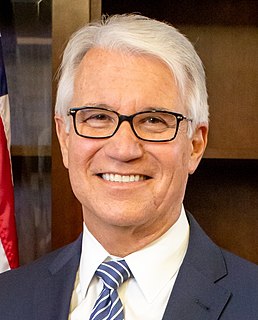A Quote by David Gauke
I believe the public therefore expect the justice system to focus on rehabilitation to reduce the risk of subsequent offending - and the likelihood of them becoming a victim of crime.
Related Quotes
The goal is not to just have rapists expelled from schools. I don't want rapists transferring schools. I don't want them out there, being able to commit these crimes. I want them to go to prison. But if you understand this crime and you understand what happens in the reporting of this crime and the support that a victim does or does not get, you realize that our legislation increases the likelihood that a young woman will go to the police in a timely manner and that the police will investigate and that they will be able to administer real justice in the criminal system.
Stated in the simplest terms, the recognized solution to the problem of foodborne illness is a comprehensive prevention strategy that involves all participants in the food system, domestic and foreign, doing their part to minimize the likelihood of harmful contamination. And that is the strategy mandated by FSMA. It is not a strategy that assumes we can achieve a zero-risk food supply, but it is a strategy grounded in the conviction that we can better protect consumers and the economic vigor of the food system if everyone involved implements reasonably available measures to reduce risk.
Given my experience, I believe there are three compelling reasons why the death penalty should be replaced. (1) The criminal justice system makes mistakes and the possibility of executing innocent people is both inherently wrong and morally reprehensible; (2) My personal experience and crime data show the death penalty does not reduce crime; and (3) The death penalty wastes precious resources that could be best used to fight crime and solve thousands of unsolved homicides languishing in filing cabinets in understaffed police departments across the state.
'By Any Means' follows a team of behind-the-scenes crime-prevention team - not police. They basically go to the areas of crime where the police can't touch and organised crime fighting units can't go to - in the public eye - to bring about real justice, treading the line between 'true' justice and what the law says is justice.
Health insurance in Germany continues with no change if you lose a job. We do know very well that people who become unemployed are at an increased risk of becoming ill, and therefore becoming unemployed is about the worst time to lose health insurance. So therefore, everyone who loses a job remains in exactly the same insurance system he is in.
The criminal justice system - although this applies less to the U.S., where rehabilitation is not seen as a valuable contribution to criminal justice - in Europe where rehab is supposed to be integral, we have no way of rehabilitating skilled hackers. On the contrary what we do is we demonize them and continue to do so after they come out of jail because we restrict their access to computers by law. Crazy world, crazy people.


































